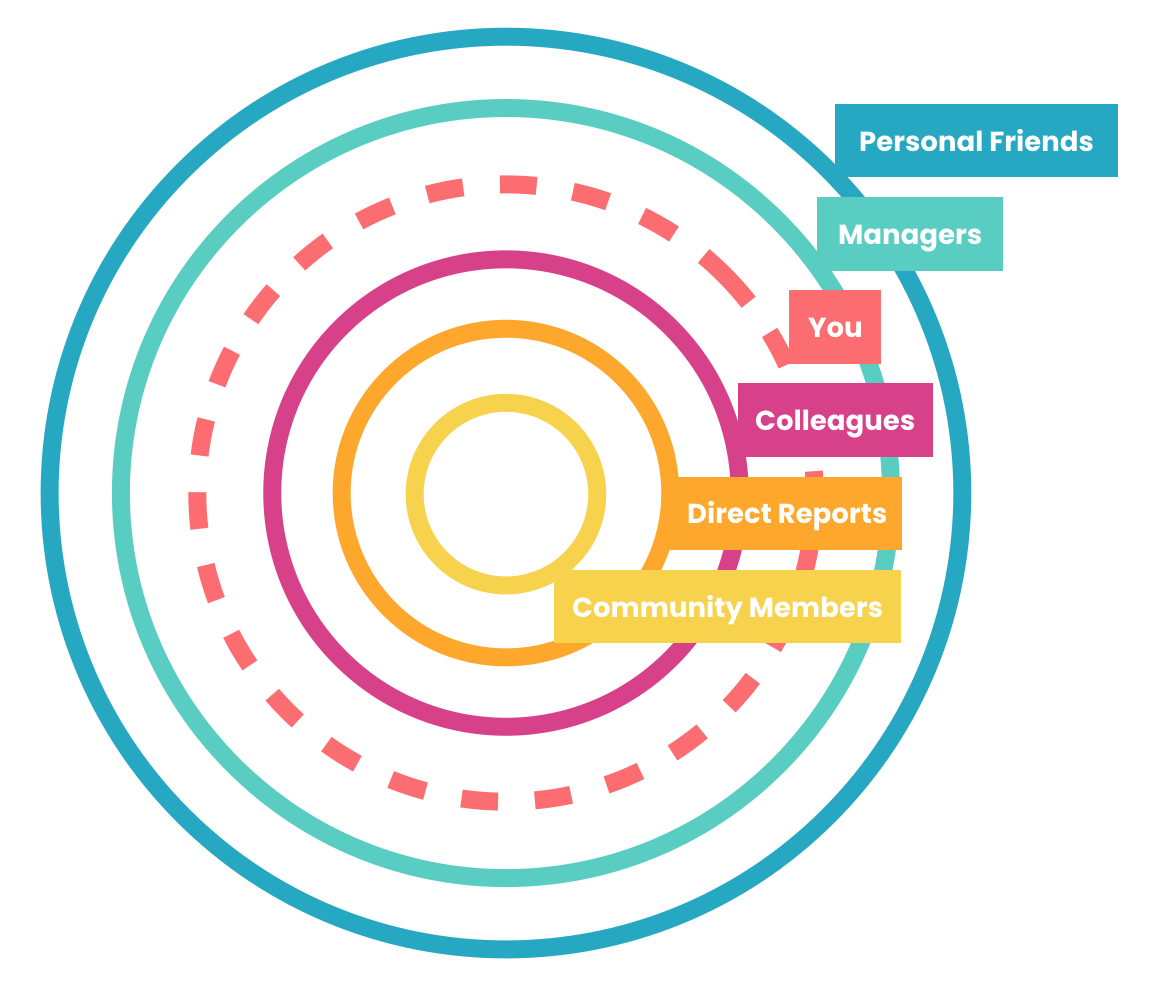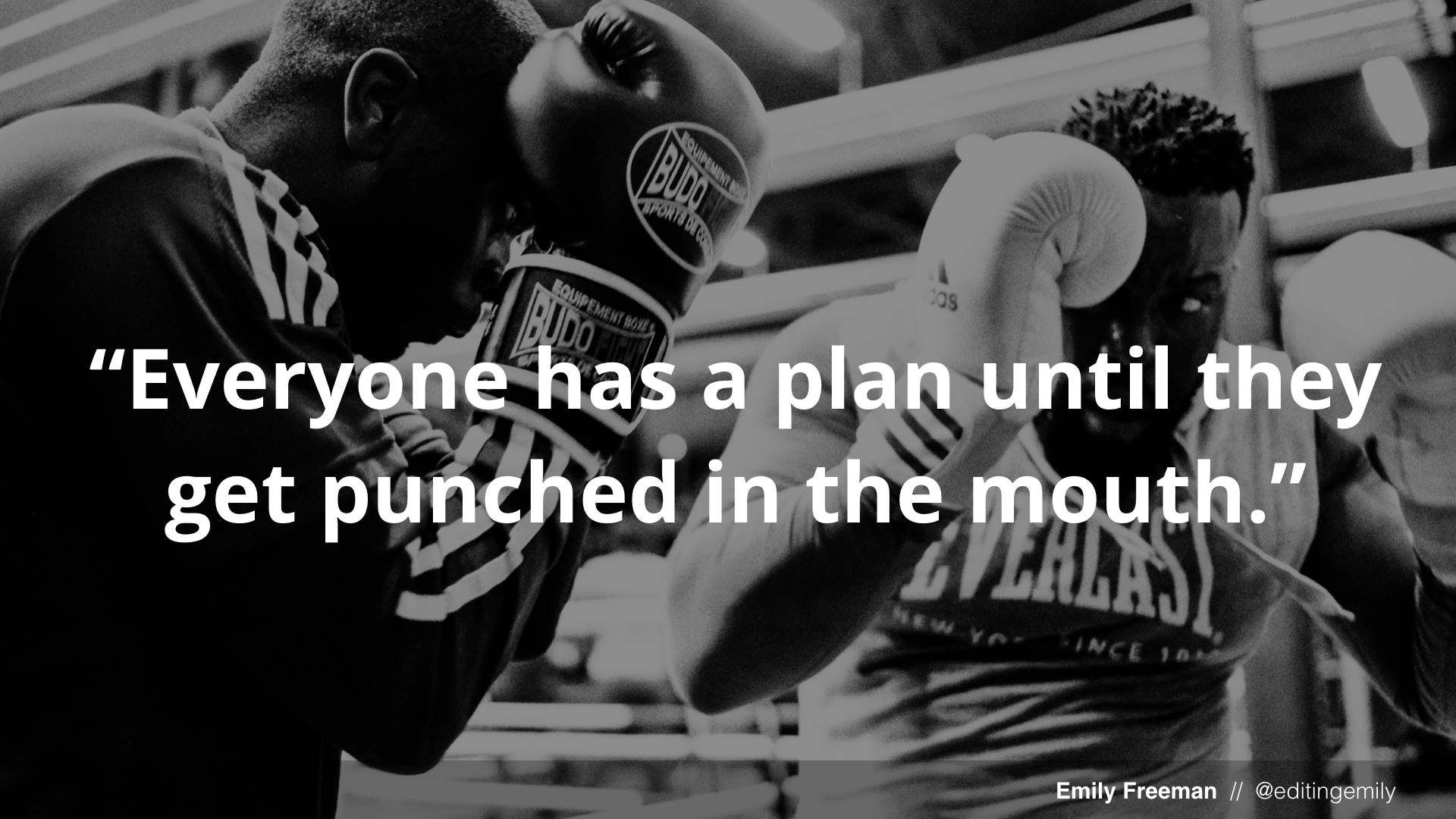The #watercooler used to be a physical space. Not a slack channel. (Yes, kids, we didn’t always have LaCroix and fancy bottled water.)
And I believe the watercooler can be a healthy place for colleagues to gather and discuss ideas. Some companies even promote cross-functional teams meeting to discuss things wholly unrelated to work because those discussions can spur ideas. And the relationships formed in those moments can benefit the team — and the company — in a real way.
“Great Minds Discuss Ideas; Average Minds Discuss Events; Small Minds Discuss People.”
People work well with people they trust. People work well when they feel safe.
But the watercooler (which can come in many forms) can become malignant. The watercooler can turn from a place where people discuss ideas to a place where people discuss people. And that is one of my canaries for a toxic work environment.
I’ve long loved the quote, “Great Minds Discuss Ideas; Average Minds Discuss Events; Small Minds Discuss People.“ It’s often attributed to Eleanor Roosevelt but that credit is perhaps unfounded.
I’m the first to say I don’t always live up to this ideal. That’s the thing with goals and principles — you don’t always achieve them. But they do serve as a guide to redirect you when you become lost.
Humans Are Pack Animals
I’m human. I don’t like some people. And not for any good reason. I just don’t like them. And there are people with whom I have no interest in forming a longterm personal relationship. This isn’t always a reflection of them as a person. We just don’t jell. And that’s OK. The beautiful part of this diverse and thriving world is that we all have (or should have) our people.
There are also people with whom I have personal disagreements due to conflicts of principle. And this is where humans tend to get into trouble.
I have strong feelings about healthy conflict. And my natural personality (along with my childhood in DC) lends me the gift of being extraordinarily comfortable with direct conflict. I used to have a saying, “I don’t talk shit. If I say shit behind your back, it’s because I already said it right to your face.” And I lived up to that. Because the culture I was in allowed for it.
I’ve always preferred that approach — perhaps mostly because that’s simply the culture I grew up in — because I always knew where I stood with people. I knew X didn’t like me. And, well, fuck them. But more than that I was secure in the fact that no one was running around talking behind my back.
Although public confrontation is uncomfortable (painful?), it comes with a gift. You always have the chance to defend yourself. To meet the accusation. And that style of conflict, while more intense, is finite. It ends.
The Insidious Nature of Gossip
The cousin of direct conflict is indirect conflict. This typically comes in the form of gossip. And social ostracization. If you can’t (or won’t) have direct conflict with someone, the next option most people fall into is turning others against them.
And this behavior isn’t always malicious. Sometimes it’s just habit. And there are a lot of reasons those habits and patterns of behavior exist.
I can no longer always live by the rules of conflict I once did. For three reasons:
Not everyone is comfortable with it. And solving conflict means meeting people where they’re at. I have learned to appreciate that not everyone is as comfortable with direct conflict as me. And I try (and sometimes succeed!) at resolving those disagreements in different ways.
Some people are much better at managing public perception than me. I used to naïvely think that direct conflict and gossip were mutually exclusive. But, turns out, that’s not actually true. Some people will gossip about you for years after a direct conflict is “resolved.” Go figure.
I’m a public figure. For me, public conflict has changed from my local community of people who know me and morphed into thousands of people on the internet that see a fraction of who I am. In addition, I have a platform and, because of that, my words come with extra weight. it’s easy for me to actually be punching down. I try to be cognizant of this and overcorrect for it.
I’ve talked about the danger of gossip and tribalism in tech as a community. And I ruminate on this problem a lot. Because it is a cancer on the community I want to see all of us cultivate. A community where everyone — everyone — feels safe and welcome. And perhaps that utopia is, well, just that. But you know how I feel about unattainable goals…
Gossip Is Contagious
I think the most dangerous part of gossip is it is malignant, in every sense of the word. It grows quickly and indiscriminately. And it’s incredibly difficult to destroy without also destroying healthy cells.
But more than that, it can quickly become the norm. And people at the edges of gossip can mimic the behavior because they’re under the (sometimes unconscious) perception that to belong — to be liked — they must gossip. Or choose sides.
Venting
And I also want to be careful to acknowledge that being able to vent is healthy and important. I vent. Mostly to Jessica West. She knows things. But she also knows that when I whine, I’m mostly just moaning in the moment and after a bath and a sleep — and probably too much champagne — I’ll have a plan to work through it. As my confidant, I trust that she will keep my words confidential. I trust that she knows I don’t want her to run around sharing my heated thoughts with the entire community. She consistently earns that trust and that type of relationship is absolutely priceless. I’m forever grateful for her friendship. And the friendship of so many others.
It’s OK to vent. But what’s the difference between venting and gossip? Well, that’s a tough question. And like all things in tech, it depends. But I do think there are two guardrails to help keep you (mostly) within bounds.
To whom you complain.
How you complain.
People Matter
I think the second guardrail is more nuanced. I want to address it. Perhaps at another time. For now, I want to focus on the people to whom you complain, vent, gossip, moan, whine.
I first heard the concept of “support in; complain out” from one of my early mentors, Karen Flood. And it always stayed with me. I’ve done my best to visually illustrate the concept below.
You more than likely exist in multiple communities or groups. Work is one of the easiest scenarios to use to consider and evaluate this concept.
I think the healthiest organizations have space and room and trust for solving interpersonal conflict directly. That conflict will be contained and resolved. But achieving that trust is a long road and most of us don’t work in those extraordinarily healthy companies.
So what I’m suggesting to you is that instead of gossiping — or accidentally falling into the habit of gossip — you choose to complain out and support in.
Complain to managers, mentors and personal friends. Ask their advice. Seek their guidance. Vent. And trust that those words will stay with them. Support your colleagues, employees and community members. Speak positively. Recognize the good things. Celebrate successes. Build trust and rapport.
If you’re not comfortable talking to your boss (or your boss is the problem), seek out your boss’s boss. And if you don’t feel safe doing any of those, it may be time to consider another workplace. There are many of us who will gladly help connect you and make introductions.
And finally, talk about ideas. Not people. You exist in a community of some of the most brilliant humans on the planet. We are better than gossip. We are better than division. We spend a lot of energy cutting others’ down. Winning others to “our” side. What if we stopped? What if we spent that energy another way? What if we solved the hard problems. Together.























